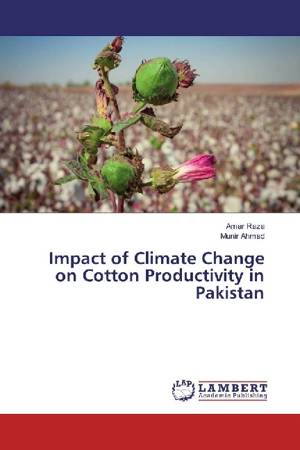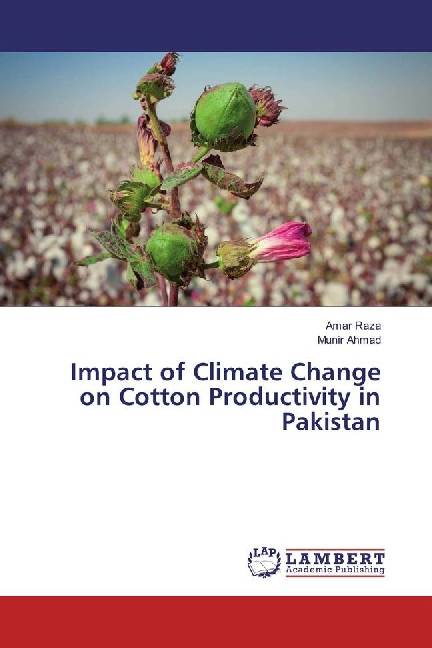
- Afhalen na 1 uur in een winkel met voorraad
- Gratis thuislevering in België vanaf € 30
- Ruim aanbod met 7 miljoen producten
- Afhalen na 1 uur in een winkel met voorraad
- Gratis thuislevering in België vanaf € 30
- Ruim aanbod met 7 miljoen producten
Zoeken
Impact of Climate Change on Cotton Productivity in Pakistan
Amar Raza, Munir Ahmad
Paperback | Engels
€ 35,45
+ 70 punten
Omschrijving
The study analyses the impact of climate change on productivity of cotton in Pakistan using the district level disintegrated data of yield, area, fertilizer, climate variables (temperature and precipitation) from 1981 to 2010. Twenty years moving the average of each climate variable is used. Production function approach is used to analyse the relationship between the crop yield and climate change. This approach takes all the explanatory variables as exogenous so the chance of endogeneity may also be minimized. Separate analysis for each province (Punjab and Sindh) is performed in the study. The results show a significant impact of temperature and precipitation on cotton yields. The impacts of climate change are slightly different across provinces-Punjab and Sindh. The results imply that educating farmers about the balanced use of fertilizer and generating awareness about the climate change could be feasible and executable strategies to moderate the adverse impacts of climate change to a reasonable extent.
Specificaties
Betrokkenen
- Auteur(s):
- Uitgeverij:
Inhoud
- Aantal bladzijden:
- 56
- Taal:
- Engels
Eigenschappen
- Productcode (EAN):
- 9783330324114
- Uitvoering:
- Paperback
- Afmetingen:
- 150 mm x 220 mm

Alleen bij Standaard Boekhandel
+ 70 punten op je klantenkaart van Standaard Boekhandel
Beoordelingen
We publiceren alleen reviews die voldoen aan de voorwaarden voor reviews. Bekijk onze voorwaarden voor reviews.











